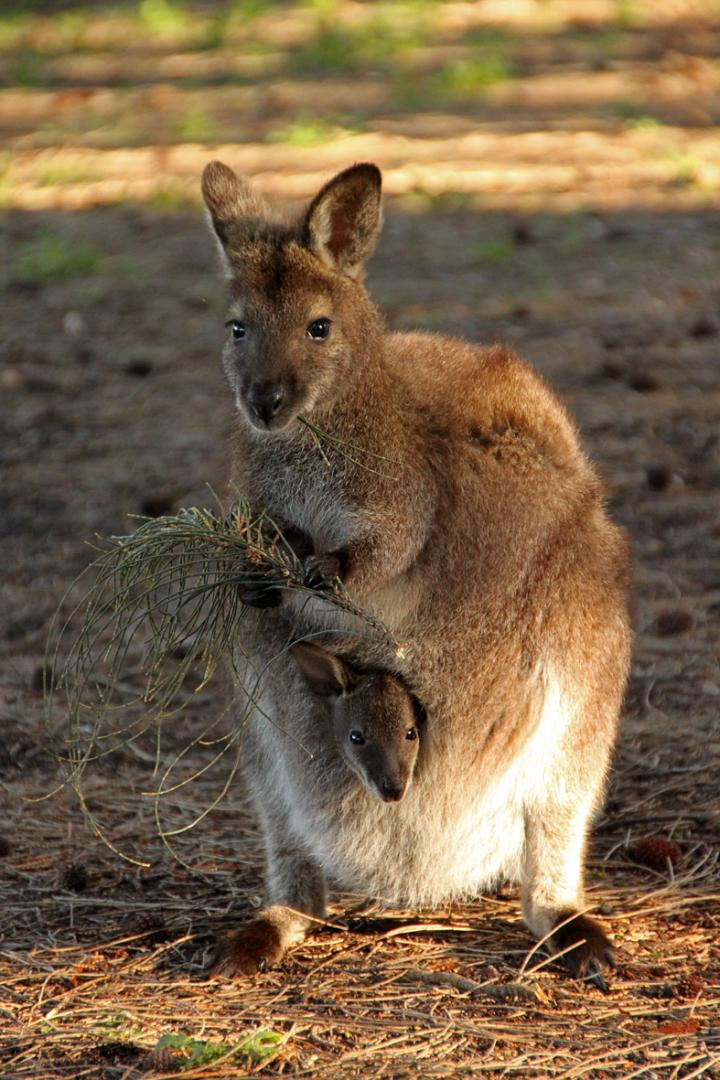Kangaroos are southpaw boxers: Marsupial study reveals left-handed preference

Kangaroos are left handed, using their left limb far more than their right to perform tasks such as grooming and picking leaves.
Scientists from the Saint Petersburg State University in Russia observed several different species of bipedal kangaroos to see if they, like other mammals, show handedness.
Lead author Yegor Malashichev had previously shown differences in handedness between jumping and walking frogs, as well as marsupials that walk on all fours – including opossums and sugar gliders.
However, true handedness among mammals was thought only to be a feature found in primates – kangaroos were not thought to have a preference because they do not have the same neural circuit that bridges the right and left hemispheres of the brain.
The team studied kangaroos in Tasmania and Australia. Their findings were published in the Cell Press journal Current Biology.
Malashichev said: "What we observed in reality we did not initially expect. But the more we observed, the more it became obvious that there is something really new and interesting in the wild.

"According to a special-assessment scale of handedness adopted for primates, kangaroos pulled down the highest grades. We observed a remarkable consistency in responses across bipedal species in that they all prefer to use the left, not the right, hand."
Findings showed wild kangaroos had a natural preference for their left hands while performing actions such as grooming the nose, picking leaves and bending tree branches. This behaviour was particularly prominent among eastern grey and red kangaroos.
"Here we show that bipedal macropod marsupials display left-forelimb preference at the population level in a variety of behaviours in the wild," the authors wrote. "In eastern grey and red kangaroos, we found consistent manual lateralization across multiple behaviours. This result challenges the notion that in mammals the emergence of strong 'true' handedness is a unique feature of primate evolution."
The researchers believe the findings suggest the differences between species indicate handedness is the result of ecological adaptations, rather than an evolutionary trait.
They say more studies should be carried out on the marsupial brain as it could provide important insights into conditions like schizophrenia and autism, as links have been found between these disorders and handedness.
© Copyright IBTimes 2025. All rights reserved.






















